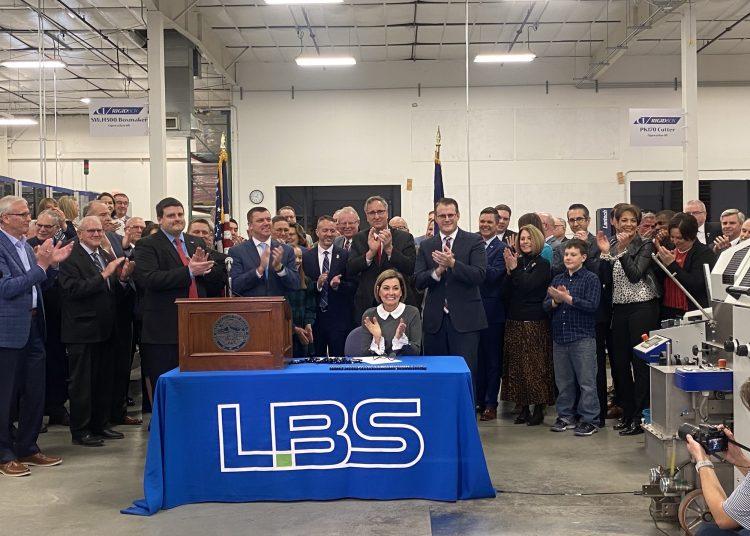DES MOINES, Iowa – Governor Kim Reynolds on Tuesday announced the State of Iowa will end Fiscal Year 2022 with a balance of $1.91 billion in the General Fund, $830 million in reserve funds and $1.06 billion in the Taxpayer Relief Fund. She also announced a drop in the top corporate tax rate.
“Time and again over the last five years, we’ve ignored the self-appointed experts who insisted that tax cuts and economic prosperity wouldn’t be worth the cost,” Reynolds said. “In fact, as today’s budget numbers show, they were worth every penny. It turns out that growth-oriented policies and fiscal restraint are a powerful combination.”
“Iowa’s strong financial status again proves that we continue to over collect from Iowa taxpayers,” Kraig Paulsen, director of the Iowa Department of Management, stated. “I applaud the Governor for finding ways to return these funds to the taxpayers.”
The Governor’s tax bill, HF2317, signed in March 2022, includes the formula to reduce the corporate tax rate when net corporate income tax receipts exceed $700 million. For Fiscal Year 2022, net corporate income tax receipts exceeded $850 million, triggering a drop in the top corporate tax rate to 8.4 percent from 9.8 percent. This drop reduces the number of corporate tax rates from three to two, which was not projected to happen until at least 2027.
“Iowans want common-sense responsible policies even when it requires going against the grain. We cut taxes when many said our budget couldn’t handle it; we kept our economy open when few others were; we chose growth over government even when it was hard. As a result, our fiscal health is strong, and our tax code is more competitive than ever,” Reynolds added.
Democrats called Reynolds implementation of the law a “giveaway for big corporations.”
“Since 2018, Iowa Republican politicians have showered tax giveaways on the ultra-rich and big corporations while ignoring the rest of Iowa. That’s why Iowa’s job growth is the 39th worst in the nation and our roads and bridges are the 48th worst. Iowa Senate Democrats believe Iowa’s economy must work for everyone, not just those at the top,” Senate Minority Leader Zach Wahls, D-Coralville, said in a released statement.
Fiscal Year 2022 closed on June 30, but the accrual period officially ends on September 30. During those three months, Iowa closes the books and pays and receives any outstanding obligations. Fiscal Year 2021’s budget surplus was $1.24 billion.
















